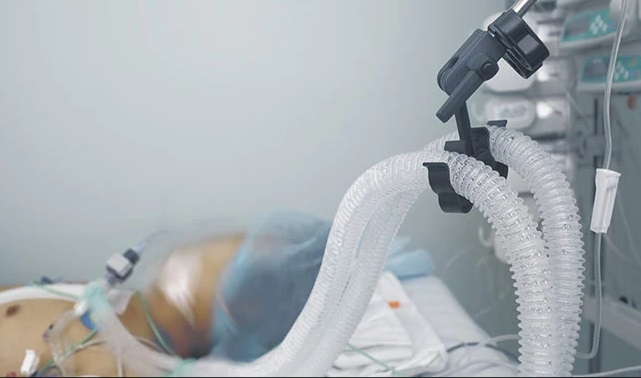New draft guidelines on passive euthanasia
| Date :29-Sep-2024 |

NEW DELHI :
Doctors should take a considered decision to not start a life supporting measure in a terminally ill patient that is unlikely to benefit the patient and is likely to lead to suffering and loss of dignity, according to the guidelines laid by Health Ministry.
DOCTORS should take a “considered decision” on withdrawal of life support in terminallyillpatientson thebasis
ofcertainconditionsincluding
a documented informed
refusal by the patient or their
kin, according to draft guidelinesbyUnionHealthMinistry.
The guidelines laid out four
conditionsonpassiveeuthanasia for taking a “considered
decision in a patient’s best
interests, to stop or discontinue ongoing life support in a
terminally ill disease that is no
longer likely to benefit the
patient or is likely to harm in
terms of causing suffering and
loss of dignity.”
The conditions are whether
the individual has been
declared brainstem death, if
there is a medical prognostication and considered opinion that the patient’s disease
condition is advanced and not
likely to benefit from aggressive therapeuticinterventions,
patient/surrogate documented informed refusal, following
prognostic awareness, to continue life support and compliance with procedure prescribedby the SupremeCourt.
The ‘Draft Guidelines for
Withdrawal of Life Support in
Terminally Ill Patients,’ also
state that doctors should take
a considered decision to not
start a life supportingmeasure
in a terminally ill patient that
isunlikely tobenefit thepatient
and is likely to lead to suffering and loss of dignity.
In such a case, three conditions — on whether the individualhasbeendeclaredbrainstem death, if there is a medical prognostication and
considered opinion that the
patient’s disease condition is
advanced andnotlikely tobenefit from aggressive therapeutic interventions, patient/surrogate documented informed
refusal, following prognostic
awareness — has to be taken
into account.TheMinistry has
invited feedback and suggestions from the stakeholders on
the draft by October 20.
Thedraftguidelineshavenot
gone down well among the
members of the medical fraternity, with the IMA’s nationalPresidentDrRVAsokanstating it exposes doctors to legal
scrutiny and puts them under
stress.“Such clinical decisions
havealwaysbeen takeningood
faith by doctors.
The patient’s
relatives are explained and given all information, taken into
confidence ina given case and
decision is taken on merit in
every single case. Putting it
down in sort of guidelines and
also alleging that inappropriate decisions have been taken
or they have been prolonged
is misunderstanding the situation,” Dr Asokan said.
“First the perception and
assumption that unnecessarily machines are used and lives
are prolonged is wrong. It
exposesdoctors tolegalscruity.
More so what is left of a doctor-patientrelationship...Trying
to defineitin4 corners of black
and white documentation
which is legally scrutinised is
nothing but exposing doctors
to further stress,” he said.



